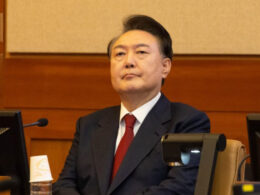The Independent Corrupt Practices and Other Related Offences Commission (ICPC) has recovered a substantial N13 billion in diverted public funds over the course of just one month.
Abuja, Nigeria- According to the Commission’s Chairman, Dr. Musa Aliyu (SAN). This remarkable feat was revealed during the launch of ICPC’s Strategic Action Plan 2024-2028 in Abuja, marking a significant milestone in the Commission’s ongoing fight against corruption and the mismanagement of public resources.
Dr. Aliyu’s announcement that the ICPC had recovered over N13 billion in September 2024 alone is a testament to the Commission’s relentless pursuit of accountability in Nigeria. This success follows a long history of progressive efforts aimed at safeguarding public resources, rooting out corruption, and instilling transparency within the nation’s governance systems.
In his speech, Aliyu said, “Over the past years, the ICPC has made significant progress in discharging its mandate. For example, we recovered over N13 billion diverted public funds in September 2024 alone. This is just one of the many ways we have worked tirelessly to fulfill our mandate.”
This financial recovery showcases the Commission’s ability to enforce anti-corruption laws with tangible results. Not only does it signal ICPC’s growing capacity to investigate and prosecute corruption cases, but it also sets the stage for future actions outlined in its Strategic Action Plan for the years ahead.
Strategic Action Plan 2024-2028
The ICPC’s newly launched Strategic Action Plan (SAP) 2024-2028 lays out an ambitious roadmap for strengthening the Commission’s efforts in combating corruption at various levels. The SAP is rooted in the “CARE for Impact” initiative, which emphasizes Culture, Accountability, Responsibility, and Efficiency. These core principles aim to shape how the Commission operates internally and externally.
Aliyu noted, “SAP, in line with our ‘CARE for Impact’ initiative, provides a comprehensive roadmap for achieving our goals over the next five years. It aligns with key national policies such as the Nigeria Agenda 2050, the National Anti-Corruption Strategy 2022-2026, and the National Ethics and Integrity Policy, among others.”
The Plan also targets collaboration between federal, state, and local authorities. A key aspect of this is the ICPC’s engagement with state governments, where it aims to decentralize anti-corruption efforts and ensure that local authorities have the necessary tools and resources to address corruption within their regions.
One of the major highlights of the ICPC’s recent efforts includes its collaboration with state attorneys-general. In September 2024, the Commission held a conference attended by more than 30 state chief law officers to discuss strategies for decentralizing anti-corruption enforcement. The goal is to empower state governments to combat corruption more effectively by equipping them with the necessary knowledge and tools.
Aliyu emphasized the importance of involving state-level authorities, saying,“We are decentralizing the anti-corruption efforts by empowering state governments through the mobilisation of state attorneys-general. This approach ensures that state governments are equipped with the tools, knowledge, and resources necessary to effectively combat corruption at the local level.”
This decentralization is crucial to improving the overall efficiency of anti-corruption measures across Nigeria, particularly in regions where governance and accountability issues are prevalent.
The Commission is also embracing technology as a critical part of its strategy for the coming years. With the integration of ICT reforms, the ICPC plans to digitalize many of its internal processes, including investigations, case management, and overall operational procedures. This move is expected to enhance the Commission’s ability to track, investigate, and prevent corruption more effectively.
Aliyu stated, “We are embarking on ICT reforms that will digitalise our operations and enable more efficient investigations, case management, and internal processes. This transformation will position the commission as a leader in leveraging technology to combat corruption, keeping us one step ahead of criminal activities in the digital age.”
In the modern world, digital tools are essential for monitoring financial flows and ensuring accountability within both government and private sectors.
Another key element of the ICPC’s Strategic Plan is the development of a specialized curriculum aimed at improving the skill set of its personnel. This training is designed to ensure that investigators and officers are fully equipped to handle complex corruption cases with a high level of professionalism and efficiency.
Aliyu said, “We are also developing a specialized curriculum aimed at enhancing the enforcement capacity of our personnel. This initiative equips our officers with the skills and expertise needed to address the complexities of corruption cases with the highest standards of professionalism and efficiency.”
This training initiative is part of a broader strategy to strengthen the institutional integrity of the ICPC and deepen collaborations with other stakeholders, including the media, civil society, and citizens.
Combating corruption requires public participation, the ICPC has intensified efforts to broaden its anti-corruption campaign. The Commission has actively engaged with citizens, civil society, and the media to create awareness and foster a culture of accountability across Nigeria.
As part of this effort, the ICPC is preparing to launch a digital community platform, EthicsPod, aimed at promoting transparency in public offices and encouraging ethical behavior in daily life. The platform is set to play a pivotal role in increasing public involvement in the fight against corruption, making it easier for individuals to report corrupt practices and access relevant information.










Join our Channel...